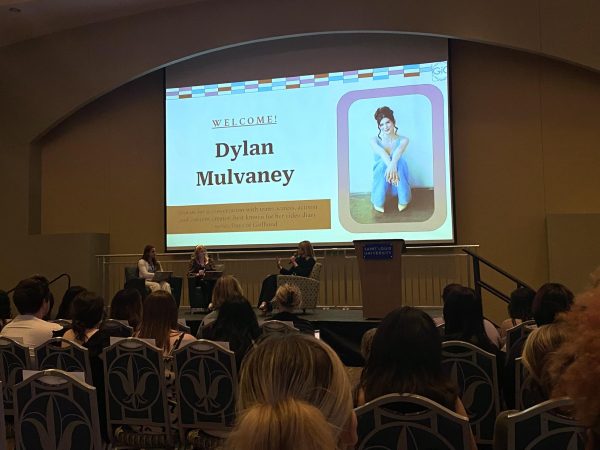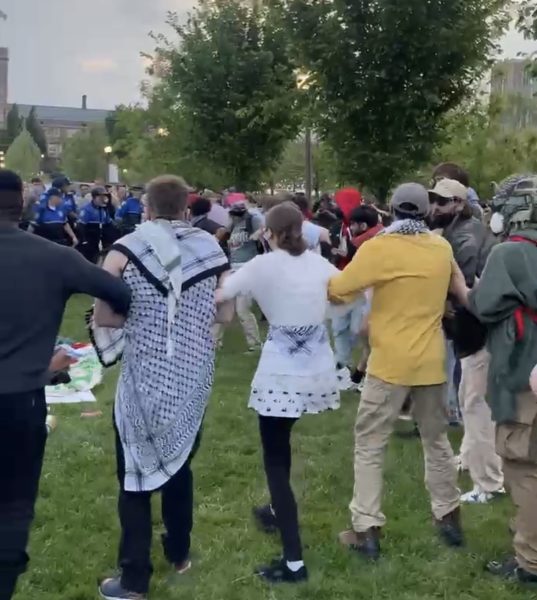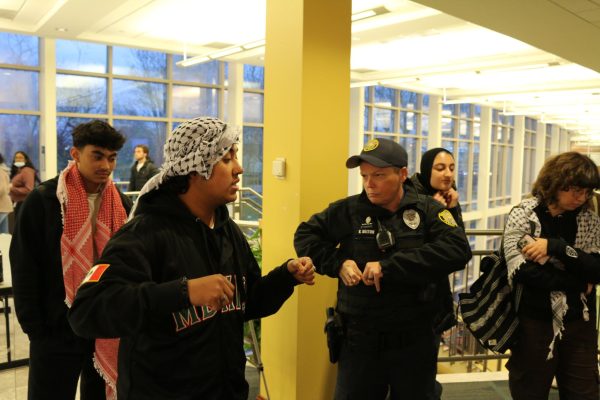Portfolio Review Nears Conclusion, 40 Programs to be Cut
In early April, Provost Michael Lewis sent an update on the ongoing Academic Portfolio Review, with forty programs slated to be cut.
On April 12, Provost Michael Lewis, Ph.D sent an email update regarding the ongoing Academic Portfolio Review (APR), which announced that 40 programs are to be closed, including 29 undergraduate and 11 postgraduate programs.
The total number of students currently enrolled in the affected programs is 260. Of these 260 students, 222 are undergraduates and 38 are graduate students. These program closures will not affect current undergraduate and graduate students who are currently participants in the affected programs, nor will it affect 2021 recruits planning on participating in the affected programs.
The review formally began in 2019, when the then-interim provost, Chet Gillis, Ph.D formed an Academic Portfolio Review committee to evaluate SLU’s degree-granting programs to “assess the value and effectiveness of academic degree programs based on metrics and university priorities.” This committee was tasked with identifying programs which were “undersubscribed” or “unviable.” After Gillis announced that he would step down as provost in April 2020, Michael Lewis, who was then serving as the Dean of the College of Arts and Sciences, took over as interim provost, and by extension, began to oversee the APR process.
The fact that the APR process, an action with potentially far reaching consequences including program closures and termination of faculty, was initiated by an interim provost, Chet Gillis, and then continued under interim provost Michael Lewis (who was named permanent provost in Feb. 2021), was the subject of some controversy. Before Lewis was named permanent provost in February, the position had been filled with interim appointments for nearly two years, after Provost Nancy Brickhouse stepped down in August 2018. In a memo sent in July 2020, a number of professors voiced the opinion that a full scale academic portfolio review should take place under a permanent provost who had been chosen by a national search committee, per the Faculty Manual and the principles of proper shared governance between faculty and administration. However, no permanent decisions on program closures were made by an interim provost, either Gillis or Lewis.
The effects of these program closures will be felt by both students and faculty, and less than half of the closed programs indicated support for the closure during the APR process. The closed programs can be divided into those slated for reallocation and those slated for reorganization. According to Provost Lewis: “reallocation is the discontinuance of a program that may result in the termination of tenured faculty” while “reorganization is the structural realignment of programs or departments, and usually results in the consolidation of academic units but not in the termination of tenured faculty.”
In his letter to students affected by the program closures, Lewis wrote that: “The faculty affected by this decision will have the opportunity to propose to me alternative options to closing the programs and given adequate time to prepare those proposals.”
Lewis also reiterated that the announced program closures were not connected to budget shortfalls resulting from the COVID-19 pandemic, but were rather part of a wider review process that began prior to the pandemic fifteen undergraduate majors are slated to be cut, the majority of which are housed in the College of Arts and Sciences. Some of the majors selected for closure include American Studies, Latin American Studies and, Russian Studies. Language study was also severely affected, with closures in German Studies, Italian Studies, and Classical Humanities/Greek and Latin Language and Literature. The University will still offer courses in these language areas, but it will no longer be possible to choose these areas as a major area of study and course variety will likely decrease.
In addition to the major programs slated for closure, ten minor programs were recommended for closure, with a total of 57 students currently pursuing these minors. The program closures also include six masters programs, which have a combined current enrollment of 26 students, and four doctoral programs, which have a combined current enrollment of 12 students, all of whom are pursuing a Ph.D in Special Education.
With this announcement, the full APR is nearing its conclusion, and Lewis detailed the next stage of the process in his announcement. Faculty who offer courses within the program will be given the chance to propose alternatives to the proposed closure, and these proposals will be decided either by the Board of Trustees, if it is a program for reallocation, or directly to the Provost, if it is considered reorganization.
Your donation will support the student journalists of Saint Louis University. Your contribution will help us cover our annual website hosting costs.










